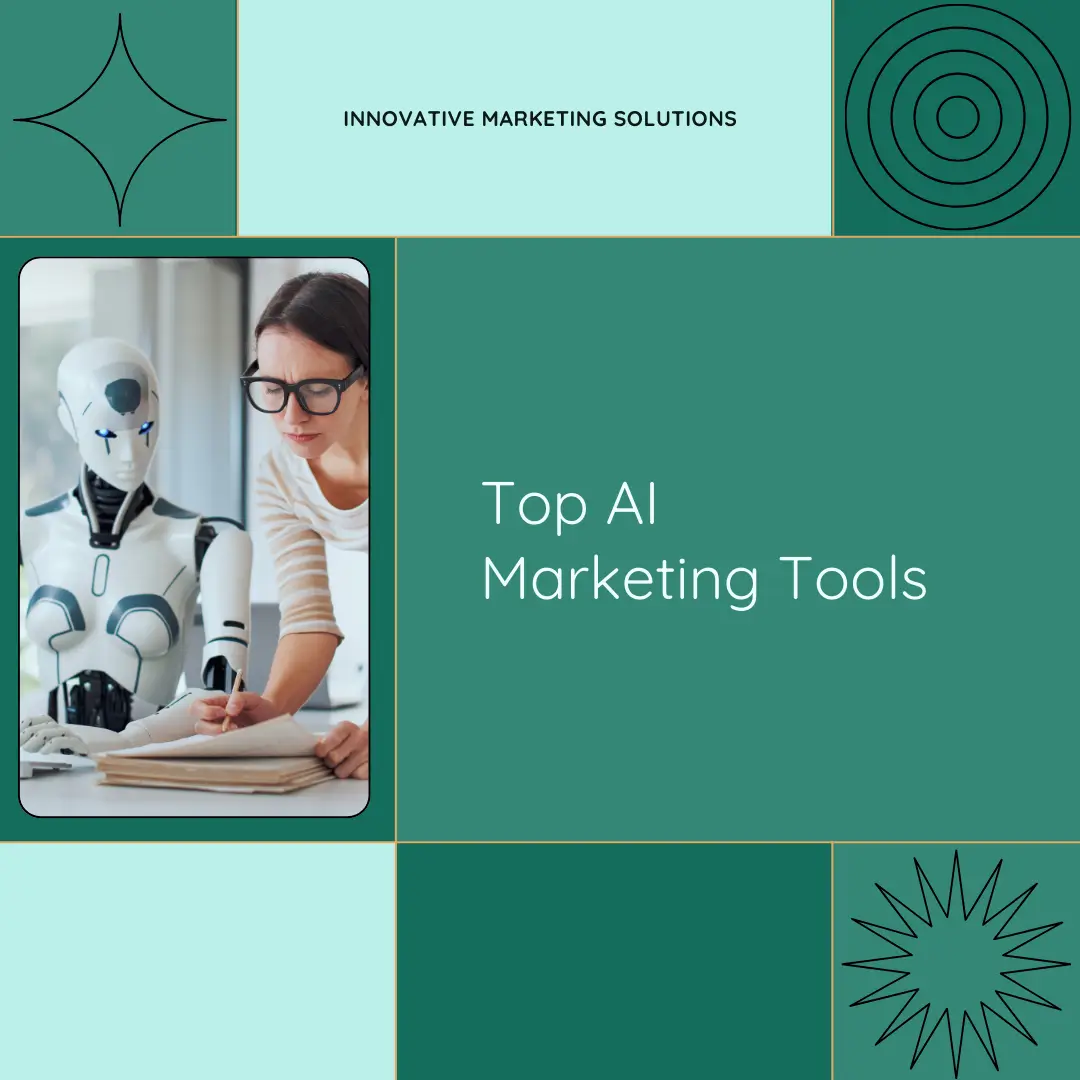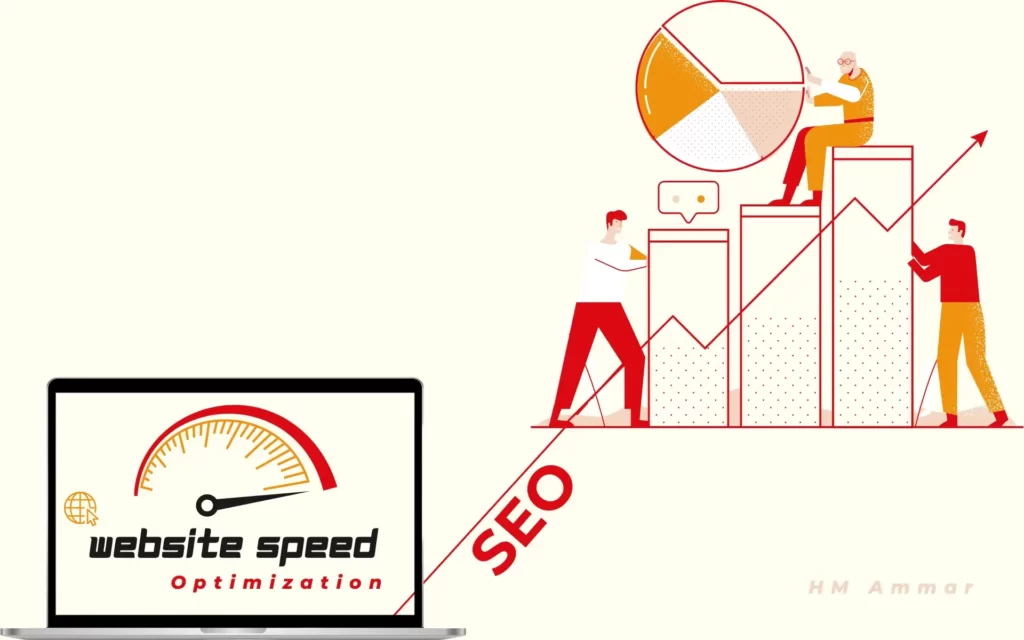In today’s dynamic digital landscape, AI marketing tools have become indispensable for businesses aiming to accelerate growth, streamline campaigns, and optimize every facet of their marketing strategy. In 2025, the integration of advanced artificial intelligence is revolutionizing how companies reach their target audiences, analyze performance, and deliver personalized customer experiences. This comprehensive guide introduces the Top 50 AI Marketing Tools for Business Growth in 2025 and demonstrates how these powerful tools can help your business thrive.
Introduction to AI Marketing Tools for Business Growth in 2025
Artificial intelligence has evolved from a futuristic concept to a practical solution that drives real-world results. AI marketing tools harness the power of machine learning, natural language processing, and data analytics to help marketers:
- Automate repetitive tasks such as content scheduling, ad bidding, and customer segmentation.
- Gain deep insights into customer behavior and campaign performance.
- Optimize strategies by testing different messaging, creative elements, and targeting options.
- Personalize customer interactions at scale to drive engagement and conversion rates.
By incorporating these tools into your marketing stack, you can make more informed decisions, reduce costs, and generate a higher return on investment (ROI).
Why AI Marketing Tools Are Essential for Business Growth
Businesses face an increasingly competitive environment where staying ahead of trends and reacting swiftly to customer needs is paramount. AI marketing tools provide the following benefits:
- Enhanced Efficiency: Automate tasks such as email marketing, social media posting, and ad management so your team can focus on strategic decision-making.
- Improved Data Analysis: Leverage predictive analytics to understand market trends, customer preferences, and campaign performance.
- Personalized Customer Experiences: Deliver tailored content and recommendations to each customer, increasing engagement and loyalty.
- Cost Savings: Optimize budgets by allocating resources where they’re most effective, reducing waste in advertising spend.
- Actionable Insights: Use real-time data to adapt and refine marketing strategies quickly.
These benefits make AI marketing tools a critical investment for businesses aiming to achieve sustainable growth in 2025 and beyond.
Top 50 AI Marketing Tools for Business Growth in 2025
Below is a detailed list of 50 essential AI marketing tools that can help propel your business forward this year. Each tool is accompanied by a brief description, practical examples, and use cases to help you understand its benefits.
1. HubSpot Marketing Hub with AI
Overview: HubSpot’s Marketing Hub leverages AI to automate lead nurturing, optimize email campaigns, and personalize website experiences.
Use Case: Automatically segment leads based on behavior and deliver personalized email drip campaigns that drive conversions.
Learn More: HubSpot Marketing Hub
2. Salesforce Einstein Marketing
Overview: Salesforce Einstein integrates AI into its CRM to predict customer behavior and automate marketing processes.
Use Case: Use Einstein Analytics to forecast campaign performance and adjust strategies in real time.
Learn More: Salesforce Einstein
3. Adobe Sensei
Overview: Adobe Sensei utilizes AI to enhance creative assets, automate image tagging, and optimize digital experiences across Adobe’s suite.
Use Case: Automatically generate image tags and optimize ad creatives to improve engagement on social media.
Learn More: Adobe Sensei
4. Oracle Eloqua
Overview: Oracle Eloqua’s AI-driven marketing automation platform personalizes content delivery and tracks customer journeys.
Use Case: Create personalized landing pages that adapt based on visitor data to increase conversion rates.
Learn More: Oracle Eloqua
5. Marketo Engage (Adobe)
Overview: Marketo Engage uses AI to drive engagement through predictive analytics and customer segmentation.
Use Case: Identify high-potential leads using predictive scoring and deliver targeted content to nurture them through the funnel.
Learn More: Marketo Engage
6. Mailchimp with AI Automation
Overview: Mailchimp’s AI features automate email campaign optimization, audience segmentation, and performance analytics.
Use Case: Automatically adjust send times based on when subscribers are most likely to engage.
Learn More: Mailchimp
7. Hootsuite Insights with AI
Overview: Hootsuite Insights utilizes AI to analyze social media trends, sentiment, and engagement metrics.
Use Case: Monitor brand sentiment in real time and adjust social media strategies to capitalize on trending topics.
Learn More: Hootsuite Insights
8. Sprout Social with AI Analytics
Overview: Sprout Social uses AI-powered analytics to provide deep insights into audience behavior and content performance.
Use Case: Optimize posting schedules and content themes based on AI-driven audience insights.
Learn More: Sprout Social
9. SEMrush with AI Recommendations
Overview: SEMrush offers AI-driven SEO and PPC tools to optimize online visibility and ad performance.
Use Case: Get actionable recommendations for keyword optimization and competitive analysis to improve search rankings.
Learn More: SEMrush
10. Ahrefs with AI Enhancements
Overview: Ahrefs leverages AI to analyze backlinks, track keyword rankings, and provide content gap analysis.
Use Case: Identify untapped keywords and optimize your content strategy based on AI-powered competitor analysis.
Learn More: Ahrefs
11. Moz Pro with AI-Driven Insights
Overview: Moz Pro uses AI to enhance SEO audits, keyword tracking, and on-page optimization.
Use Case: Utilize AI insights to identify and fix technical SEO issues that may be hindering your site’s performance.
Learn More: Moz Pro
12. Google Analytics with AI Intelligence
Overview: Google Analytics now incorporates AI to deliver predictive insights and automated alerts for website performance.
Use Case: Receive automated insights on traffic drops or conversion anomalies, allowing for quick corrective actions.
Learn More: Google Analytics
13. Adobe Analytics with AI
Overview: Adobe Analytics leverages AI to predict user behavior and provide insights into content performance.
Use Case: Optimize marketing campaigns by analyzing user paths and predicting future trends.
Learn More: Adobe Analytics
14. Oracle Infinity
Overview: Oracle Infinity uses AI to deliver real-time insights into customer journeys and digital behaviors.
Use Case: Monitor user interactions across digital channels to identify key drop-off points and optimize conversion funnels.
Learn More: Oracle Infinity
15. Pardot by Salesforce
Overview: Pardot automates B2B marketing processes with AI-driven lead scoring, email marketing, and campaign analytics.
Use Case: Nurture leads through personalized email sequences and use predictive lead scoring to focus sales efforts.
Learn More: Pardot
16. ActiveCampaign AI
Overview: ActiveCampaign combines email marketing, automation, and CRM features enhanced by AI to drive customer engagement.
Use Case: Automate customer journeys and predict churn rates to proactively engage at-risk customers.
Learn More: ActiveCampaign
17. AdRoll AI
Overview: AdRoll uses AI to optimize retargeting campaigns, ad placements, and customer segmentation.
Use Case: Automatically adjust ad bids and creative placements based on real-time performance data.
Learn More: AdRoll
18. Kenshoo (Skai)
Overview: Kenshoo, now rebranded as Skai, employs AI to optimize digital advertising across search, social, and e-commerce channels.
Use Case: Use AI-powered insights to maximize ROI across multi-channel ad campaigns.
Learn More: Skai
19. Drift Chatbot
Overview: Drift’s AI chatbot enhances lead generation by engaging website visitors in real time with personalized conversations.
Use Case: Qualify leads instantly by automating chat interactions and scheduling meetings for your sales team.
Learn More: Drift
20. Intercom AI Chatbot
Overview: Intercom’s AI chatbot provides conversational support, automated lead qualification, and customer engagement on websites and apps.
Use Case: Use Intercom to reduce support tickets by automating responses to frequently asked questions.
Learn More: Intercom
21. Conversica
Overview: Conversica offers AI-powered virtual assistants to engage leads via email and SMS, driving higher conversion rates.
Use Case: Automate the follow-up process for leads, ensuring that no potential customer slips through the cracks.
Learn More: Conversica
22. Chatfuel
Overview: Chatfuel is a leading platform for building AI chatbots for Facebook Messenger and Instagram, enhancing social media engagement.
Use Case: Automate customer service interactions on social media platforms, freeing up human agents for more complex queries.
Learn More: Chatfuel
23. ManyChat
Overview: ManyChat provides an easy-to-use chatbot builder that integrates with multiple messaging platforms, powered by AI for personalized interactions.
Use Case: Launch marketing campaigns on Messenger and WhatsApp with automated flows that nurture leads and drive conversions.
Learn More: ManyChat
24. LatelyAI
Overview: LatelyAI automates social media content creation by analyzing past performance and generating posts that resonate with your audience.
Use Case: Repurpose long-form content into engaging social media posts that boost audience engagement and drive traffic.
Learn More: LatelyAI
25. Crayon
Overview: Crayon uses AI to monitor competitors, track market trends, and provide insights into their digital strategies.
Use Case: Stay ahead of the competition by monitoring their campaigns and adjusting your strategy based on real-time market intelligence.
Learn More: Crayon
26. Databox with AI
Overview: Databox provides AI-driven analytics and dashboards that consolidate data from multiple marketing channels.
Use Case: Visualize key performance indicators (KPIs) in real time, enabling quick decision-making and strategy adjustments.
Learn More: Databox
27. Sprinklr
Overview: Sprinklr is an integrated customer experience management platform that uses AI to provide unified insights across social, marketing, and customer service channels.
Use Case: Use AI to analyze customer feedback across social media and adjust your campaigns to improve satisfaction and engagement.
Learn More: Sprinklr
28. Brandwatch AI
Overview: Brandwatch leverages AI to monitor social media, analyze brand sentiment, and provide competitive intelligence.
Use Case: Identify emerging trends and shifts in customer sentiment to pivot your marketing strategy quickly.
Learn More: Brandwatch
29. Meltwater
Overview: Meltwater uses AI to monitor media mentions, track competitors, and provide comprehensive PR analytics.
Use Case: Analyze media coverage and social buzz to inform your PR and marketing strategies, ensuring that you respond promptly to market developments.
Learn More: Meltwater
30. Talkwalker
Overview: Talkwalker is an AI-powered social listening and analytics platform that tracks brand mentions and analyzes trends across various digital channels.
Use Case: Use Talkwalker to gauge customer sentiment and measure the effectiveness of your social media campaigns.
Learn More: Talkwalker
31. Socialbakers (Emplifi)
Overview: Socialbakers, now rebranded as Emplifi, offers AI-driven social media management and analytics to optimize content strategies.
Use Case: Leverage AI insights to identify the best times to post and the type of content that drives engagement.
Learn More: Emplifi
32. BuzzSumo
Overview: BuzzSumo uses AI to analyze content performance, helping marketers identify trending topics and top-performing content.
Use Case: Discover popular content ideas and optimize your content strategy by analyzing what resonates with your target audience.
Learn More: BuzzSumo
33. BuzzStream
Overview: BuzzStream helps manage influencer outreach and link building, enhanced by AI-powered research for finding relevant influencers and content opportunities.
Use Case: Streamline your outreach process by using AI to identify and engage with the right influencers for your brand.
Learn More: BuzzStream
34. SEMrush Social Media Toolkit
Overview: SEMrush offers an integrated social media toolkit powered by AI to analyze engagement and optimize social strategies.
Use Case: Monitor social media campaigns and receive AI recommendations on how to boost engagement and drive traffic.
Learn More: SEMrush Social Media Toolkit
35. Planoly
Overview: Planoly uses AI to help schedule and manage social media posts, providing insights into optimal posting times and content performance.
Use Case: Create a visually appealing social media calendar that maximizes engagement through data-driven scheduling.
Learn More: Planoly
36. Later
Overview: Later is a social media scheduling platform with AI-driven analytics that help optimize posting strategies for visual content.
Use Case: Schedule Instagram posts and stories using AI insights to boost audience interaction.
Learn More: Later
37. Iconosquare
Overview: Iconosquare provides detailed analytics for social media platforms, using AI to derive actionable insights for Instagram and Facebook marketing.
Use Case: Track engagement metrics and refine your content strategy based on AI-powered performance reports.
Learn More: Iconosquare
38. Tailwind
Overview: Tailwind is an AI-powered social media scheduling tool focused on Pinterest and Instagram, offering detailed analytics and content optimization tips.
Use Case: Optimize your visual content strategy on Pinterest by using AI to identify trending pins and best posting times.
Learn More: Tailwind
39. Buffer Analyze
Overview: Buffer Analyze uses AI to provide deep insights into social media performance, helping businesses understand engagement patterns and ROI.
Use Case: Use AI-generated reports to adjust your content calendar and improve overall social media strategy.
Learn More: Buffer Analyze
40. Canva’s AI Design Tool
Overview: Canva’s AI-powered design tool simplifies the creation of stunning visual content with automated design suggestions and template recommendations.
Use Case: Quickly generate branded graphics for social media ads and presentations without extensive design experience.
Learn More: Canva
41. Crello (VistaCreate) with AI
Overview: Crello, now known as VistaCreate, uses AI to offer dynamic design templates and editing features for creating engaging visual content.
Use Case: Create eye-catching marketing materials that adapt automatically to different social media platforms.
Learn More: VistaCreate
42. InVideo AI
Overview: InVideo AI helps marketers create professional-quality videos with AI-powered templates, voiceovers, and editing tools.
Use Case: Produce video ads and social media clips that are optimized for engagement using AI-generated scripts and visuals.
Learn More: InVideo
43. Vidyard AI
Overview: Vidyard uses AI to optimize video marketing campaigns, providing insights into viewer engagement and conversion metrics.
Use Case: Analyze video performance to refine future campaigns and personalize video content based on audience behavior.
Learn More: Vidyard
44. Wistia with AI Analytics
Overview: Wistia offers video hosting and marketing tools enhanced by AI-driven insights that help optimize video performance and viewer engagement.
Use Case: Use Wistia’s analytics to determine which video segments drive the most engagement, then adjust your content strategy accordingly.
Learn More: Wistia
45. Synthesia
Overview: Synthesia leverages AI to create video content using virtual avatars, making video production faster and more cost-effective.
Use Case: Produce training videos or personalized marketing messages without the need for actors or complex filming setups.
Learn More: Synthesia
46. Descript
Overview: Descript is an AI-powered video and audio editing tool that automates transcription, editing, and content creation.
Use Case: Quickly generate transcripts of webinars or create polished video content with minimal manual editing.
Learn More: Descript
47. Copy.ai
Overview: Copy.ai uses AI to generate creative marketing copy, blog posts, and social media content tailored to your brand’s voice.
Use Case: Automate the creation of engaging ad copy or social media posts, saving time on brainstorming and editing.
Learn More: Copy.ai
48. Jasper AI
Overview: Jasper AI is a content generation platform that leverages advanced AI to produce high-quality marketing copy, blog articles, and more.
Use Case: Use Jasper AI to quickly generate a first draft for blog posts or ad campaigns, then fine-tune the content to match your brand’s tone.
Learn More: Jasper AI
49. Writesonic
Overview: Writesonic is an AI writing assistant that creates persuasive copy for ads, landing pages, and blog content, optimized for SEO.
Use Case: Generate landing page copy that is designed to convert visitors into leads, with SEO-rich language and compelling calls-to-action.
Learn More: Writesonic
50. MarketMuse
Overview: MarketMuse uses AI to perform content audits, identify content gaps, and provide optimization recommendations to improve SEO and user engagement.
Use Case: Analyze your existing content to find optimization opportunities and plan new content that targets underserved keywords, increasing organic traffic.
Learn More: MarketMuse
How to Choose the Right AI Marketing Tool for Your Business
With 50 powerful tools at your disposal, selecting the right AI marketing tools for your business depends on several key factors:
- Business Goals:
Determine whether your focus is on lead generation, customer engagement, content creation, or comprehensive analytics. For instance, if your goal is to enhance content marketing, tools like Jasper AI, MarketMuse, and Copy.ai may be ideal. - Budget:
Consider both free and premium options. Many tools offer free tiers (e.g., Mailchimp, Canva) which can be scaled as your business grows. - Integration:
Ensure the tools you select integrate well with your existing tech stack. Look for platforms that seamlessly connect with your CRM, social media accounts, and analytics tools. - User-Friendliness:
Choose tools that provide intuitive interfaces and require minimal training, so your team can adopt them quickly and effectively. - Scalability:
Consider whether the tool can grow with your business. Tools that offer flexible pricing models and robust customer support can adapt to your evolving needs. - Data Security:
Ensure the platform adheres to high standards of data privacy and security, especially if you’re handling sensitive customer information.
Conclusion
The future of digital marketing in 2025 is powered by AI. These 50 AI marketing tools for business growth are designed to automate routine tasks, generate insightful data, personalize customer interactions, and ultimately drive a higher ROI. By carefully selecting and integrating the right mix of these tools, businesses can not only stay competitive but also unlock new growth opportunities in a rapidly evolving digital landscape.
From advanced platforms like HubSpot Marketing Hub and Salesforce Einstein Marketing that provide deep customer insights, to creative tools like Canva’s AI Design Tool and Synthesia for engaging video content, these technologies offer a comprehensive solution to modern marketing challenges.
Whether you are a small business owner or part of a large enterprise, the intelligent automation and data-driven strategies enabled by these AI marketing tools can transform your marketing efforts and set you apart from the competition. Embrace these innovations, stay agile, and watch your business growth soar in 2025 and beyond.






